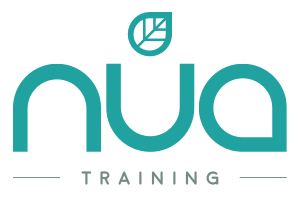
When leaders shift their focus from listening and telling towards more of a coaching mindset, they can help individuals and teams understand why and how they could proceed when faced with a particular challenge or situation. As a result, employees feel supported and empowered and amazing things happen!
When given time and space, and the right framework and questions to work through a particular challenge, it suddenly becomes much easier for individuals to see the changes that need to be made for themselves. No matter the role or how long someone has been at the organisation, leadership coaching gives everyone an opportunity to stretch and grow and in turn contribute more value to their team, clients, and the business overall.
The value and benefits of coaching is widely acknowledged both by employers and employees alike and has been for some time now, but how does this return on investment show itself? Well, research shows that over 70 percent of employees who are skillfully coached improve their performance on the job. Furthermore, research by Gallup highlights that, amongst other things, investing in coaching results in significant lower staff turnover levels (26% to 72% lower turnover levels in high-turnover organisations) as well as increased engagement (rising from 9% to 15%).
For data leaders in particular, these numbers are very important, especially at times when staff retention is a key business priority and filling roles is a costly and time-consuming activity. However, there are many other benefits that coaching can bring to data leaders and data teams…
6 Benefits of Data Leadership Coaching for Your Organization
1. Increased levels of engagement
Coaching engages leaders with its unique one-on-one feedback and lots of encouragement. Many businesses aren’t doing this as well as they could and are missing out on a huge opportunity. It makes sense that when an individual becomes engaged with their workplace, they can contribute more effectively to both the team and business.
This engagement also helps to increase retention rates and boost productivity, benefiting individuals and their careers as well as the overall organisation. It’s a win, win scenario.
2. Creates accountability for achieving goals
Coaching gives the individual an opportunity to define their career goals in a realistic way. With the assistance of a coach, they can set these goals and then map out a clear plan for moving forward towards them.
Having this accountability also increases the likelihood that the goals will be achieved. All you need to do is look at the impact of having a personal trainer or joining WeightWatchers to understand the impact accountability has!
3. Safe place to gain perspective
Having a coach gives the individual a safe space to go and talk through sensitive issues. When the coach is a third-party participant and can remain uninvolved, but give guidance, it builds trust and allows the coachee to gain perspective without feeling intimidated or judged by someone within their own organisation.
Many of us appear confident and resolute on the outside, but on the inside it’s often a very different story. Having a coach who is removed from the day-to-day but takes the time to work through and help you unravel things and gain perspective is a real benefit.
4. Deeper level of learning
Corporate coaching isn’t just about improving an individual’s skills in the workplace; it takes learning to an even deeper level. Through coaching, data leaders can learn more about themselves, what they are good at and areas that find out how they are perceived by others and improve on areas of their personalities that they are not satisfied with.
Being a Data Leader requires a broad repertoire of skills, many of which need developing. Coaching takes learning to a level beyond remembering and understanding. The individual can take these new skills and work through how to apply them in new situations within their safe learning space.
5. Build personal awareness and confidence
Self-awareness is linked to performance and career success. A coach can give a coachee ideas for ways to improve themselves, but more importantly they can help them become aware of their blind spots. These blind sports are areas of the individual’s work or personality that they may not see but would benefit from improving.
Once the individual is aware of these areas, they can work with the coach to begin improving them. A great way to build personal awareness is through personality assessments. At Nua, we offer a free Tilt 365 Profile and Positive Influencer Predictor, to help identify natural strengths to leverage, and areas for development.
Through building personal awareness, the individual can turn their unknown weaknesses into marketable strengths.
6. Support for improving specific skills
Having support for improving skills can be extremely beneficial. Simply knowing that someone is there specifically to help goal achievement is an important part of progress within the coaching process. Data leaders are often overstretched, so having this additional support when leading a team to success can be a real gamechanger.
As skill building is often the focus of coaching relationships, there should be specific emphasis on which skills to build so the coaching is efficient and directed. For data leaders, managing specific personalities in the team, and getting the team to collaborate together into a high performing unit, are often key challenges that a data leadership coach can help with.
To summarise, the benefits of leadership coaching are vast and wide-ranging. It can positively impact careers and in turn organizational performance. Good coaches are thoughtful and invest time to find opportunities that will help data leaders leverage their strengths. This will take your people out of their comfort zone in a positive way, stretching and growing them, and allowing them to discover new ways to lead and excel.
If you would like to help your best people and teams excel through data leadership coaching, get in touch we would love to hear from you. To find out more email: tony@nuatraining.co.uk
